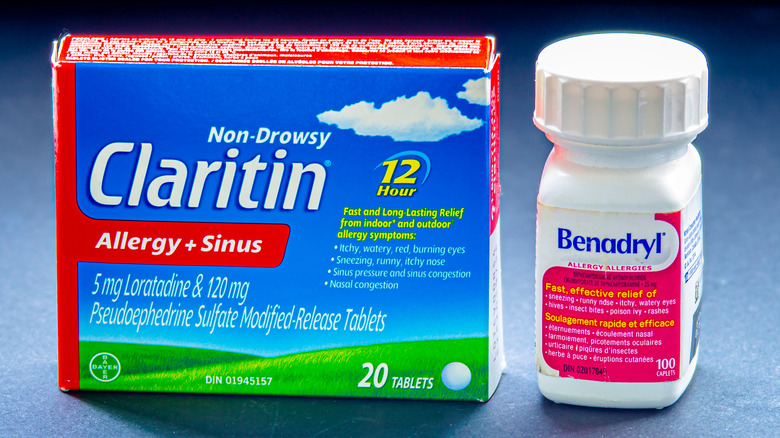
Allergy medicine can be immensely beneficial for those experiencing year-round or seasonal allergies. Whether you’re sensitive to pets or pollen, allergy medications, such as antihistamines, can alleviate troublesome allergy symptoms including sneezing, itchy and watery eyes, runny nose, congestion, and headaches (via Verywell Family). These medications work by blocking your body’s histamine response, helping to manage allergy symptoms effectively.
Just as allergies vary, so too do the types of allergy medications available, including pills, nasal sprays, eye drops, and liquids. While some may have age restrictions or induce drowsiness, they generally provide relief. However, it’s crucial to consider how long you’ve had a bottle of pills or nasal spray before use, as expiration dates indicate the medicine’s effectiveness.
Allergy medicine can last beyond the expiration date

Antihistamines, like most prescription and over-the-counter medications, come with an expiration date. This is due to regulations by the U.S. Food and Drug Administration (FDA), which mandates manufacturers to provide expiration dates based on how long the active ingredients in a medication remain potent before becoming ineffective. As noted by Insider, over-the-counter allergy medications, such as Claritin, typically have a shelf life of 2.5 years, whereas prescription antihistamines usually expire after one year.
Nasal sprays and liquid medications generally have expiration dates ranging from 1 to 2 years. However, this doesn’t necessarily mean they are unusable beyond this period. Allergy pills may still be effective 2 to 3 years past their expiration date, while nasal sprays can maintain effectiveness up to a year after the expiration date on the bottle. Using them beyond this timeframe, however, is likely to be ineffective.




